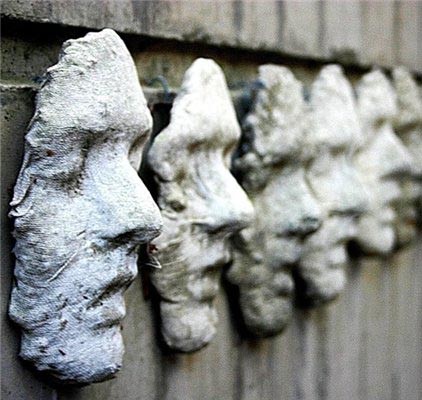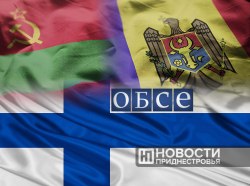"JCC's session wrecked by Moldovan delegation", "Moldova favours Russian troops' withdrawal from Pridnestrovie", "Moldova's President accuses Russia of neutrality violation", "20,000 tons of Soviet munition needs to be removed from Pridnestrovie" - these are today's news headlines. Most of the news were published on June 26, 2014. At the first sight there is nothing strange - the Moldova-Pridnestrovie conflict has not been settled up to now, and the Moldovan leaders' aspirations have long been known, and such statements by separate politicians cannot surprise anyone. Except that the concentration of thematic messages goes beyond the limit, and the date itself is not accidental - the eve of the signing of an association agreement between Moldova and the EU
Evident and plausible ...
The Republic of Moldova initialed the Association Agreement with the EU at the Vilnius summit on November 28, 2014. Over the following months Moldova has been getting ready for signing the "historic" treaty, and the X day has come even earlier than was expected. However, all that will not make a cherished EU membership closer for Moldova in the coming years. That's what the leaders of European states and the EU officials have repeatedly said. Head of the EU Delegation to Moldova PirkkaTapiola pointed out the other day that taking the country into the union is not being discussed. And it is not that the EU does not seek to replace Bulgaria with Moldova as the EU's poorest member. The unsettled conflict and deployment of the Russian troops make European prospects even vaguer for Chisinau. And it does not at all tie up with the plans the NATO makes about Moldova.
At present, the Moldova-NATO relations are regulated by the Individual Partnership Action Plan, but the possibility of entering into Intensified Dialogue, as did Ukraine and Georgia, or receiving a Membership Action Plan cannot be ruled out. And indeed it is hardly possible now to trust the leadership of the organization which have come through six "extensions" in its history, having absorbed some ex-USSR states as well.
In its turn, despite being a non-aligned state, Moldova has been increasing military cooperation with Romania, a NATO member. Many Moldovan and foreign experts, however, express indignation as some of these interstate agreements go counter to Moldova's Constitution, the other echo them: if the problem lies in the Constitution, the Constitution must be amended. The Moldovan authorities are apparently convinced: neutral status is not a final sentence, and alchemy is superior to all sciences!
Course for peace ...
This year the peacekeeping operation in Pridnestrovie, led by the Russian Federation, celebrates its 22-nd anniversary. Peace on both banks of the Dniester is preserved by the Joint Peacekeeping Forces, comprising military contingents from Russia, Moldova and Pridnestrovie, as well as military observers from Ukraine. The peacemakers serve at 15 fixed point posts and checkpoints located in the key sectors of the Security Zone, a 225 km long and 12-24 km wide strip of land stretching along the Dniester. Almost 2/3 of the Pridnestrovian territory is in the Security Zone. The peacekeeping operation is governed by the Joint Control Commission (JCC). To take a decision, a consensus must be reached at the negotiation table by three delegations. The representatives of Ukraine and the OSCE have also been invited to participate at the JCC .
Despite the both sides' recurrent intransigence, for more than two decades the JCC members have managed to reach compromises over vitally important questions. The absence of threats to peace and regional stability may have been the governing body's chief accomplishment all these years. The Joint Military Command gives weekly accounts on the situation in the Security Zone, stating that the conflict sides are not preparing for military operations.
Against this background, blocking the JCC's work by the Moldovan delegation seems to be disturbing, say nothing of the reasons inspiring Chisinau's representatives.
"We don't quite understand the motives of blocking the JCC's work. The Moldovan side is accusing Pridnestrovie of farm works being performed in the Dubossary district which have caused some conditions affecting the peacekeeping operation. That is, every field ploughed up by the republic's residents may be used as a pretext for accusing Pridnestrovie of violating something. These statements do not yield to any logical explanation," said Oleg Belyaev, Head of the Pridnestrovian delegation to the JCC.
Besides, the change of infrastructure at one of the Pridnestrovian crossing points is reported to be a reason for disrupting the session. The Pridnestrovian side, however, has sent a formal notice to that effect to their Moldovan colleagues. It should also be noted that the Moldovan representatives carried out such works themselves nearly everywhere without asking for any special permission. Incidentally, all that was also done by disrupting the JCC's sessions, following the principle "no talks - no consequences".
As is mentioned above, it is not the first time when Moldova took such steps at the JCC's sessions. In 2004, for example, the delegation members did not attend the JCC's sessions over the year, using the situation with lands around the village of Dorotskoe, which are on the Pridnestrovian territory, as a pretext. Meanwhile, the governing body of the peacekeeping operation continued its work, sessions turned into meetings, the troops went on serving in a normal operation mode.
In 2013 the Moldovan side were blocking the JCC's work from May till September on the pretext of the impossibility to monitor the Security Zone and started to equip 6 police border points in the Security Zone with the necessary infrastructure.
It is a thing of the past, but today we may face far graver consequences! Behind the disruption of the JCC's work there seems to be specific political grounds, aimed at ruining the peacekeeping operation, at least in the existing format.
Withdrawal for some, conclusions for others ...
The same day, when the Moldovan delegation disrupted the JCC's regular session, the statement was made by the President of Moldova. NikolaeTimofti underscored that the deployment of the Russian peacekeepers in Pridnestrovie severely violates a non-aligned status stipulated in the Constitution. A few hours later the same rhetoric came from ValeriuChiveri, Deputy Minister of Foreign Affairs and European Integration of the Republic of Moldova at the Annual Security Review Conference 2014, Vienna.
"The process of intensification and modernization of the arms-control regime should be backed by complete and unconditional withdrawal of the Russian troops from Moldova in compliance with the commitments made by the Russian Federation at the 1999 Istanbul Summit," the diplomat pointed out.
The persistence of Moldovan politicians, again and again referring to the agreements concluded at the Istanbul Summit, never ceases to surprise. It needs to be reminded that the Istanbul commitments of 1999 made by Russia as part of the CFE Treaty were fulfilled ahead of time in 2001. As of now, there are no arms regulated by the CFE Treaty in Pridnestrovie. Moreover, in June 2007 Russia suspended the ratification of the CFE Treaty because neither NATO member had ratified the treaty.
Further in his speech, ValeriuChiveri expressed the main message underlying this "multi-step scheme". "Both Tiraspol and Russian authorities refuse to start a political dialogue on security, which prevents from addressing the issues faced by the population in the region," he said, adding that "there is a need to reorganize the existing peacekeeping mechanism into a civilian multinational mission with a relevant international mandate."
………….
It is not difficult to assume what transformation of the peacekeeping operation might lead to. The conflict sides have no document guaranteeing the rejection of the use of force outside the framework of peacekeeping process. Besides, executing peacekeeping missions under the aegis of the OSCE is considered bad style, which is witnessed by thousands of human victims in different countries and continents after "peace" was agreed on.
Masks off
07/04/14 10:30
Masks off
Также в рубрике
12/12/24 12:47
Tiraspol, December 12. /Novosti Pridnestrovya/. The Moldovan-Pridnestrovian negotiation process turned 30 this year. Yet this date could not be marked with any agreements. Unfortunately, the outgoing year here has become another stage of missed opportunities.
05/21/24 12:10
The main accents of the meeting of political representatives of Pridnestrovie and Moldova
03/28/24 13:59
The problem of blocking the import of medicines in Pridnestrovie has attracted the international organizations` attention
02/02/24 16:07
A year ago, the Moldovan parliament made a decision that was ultimately condemned by all international mediators








